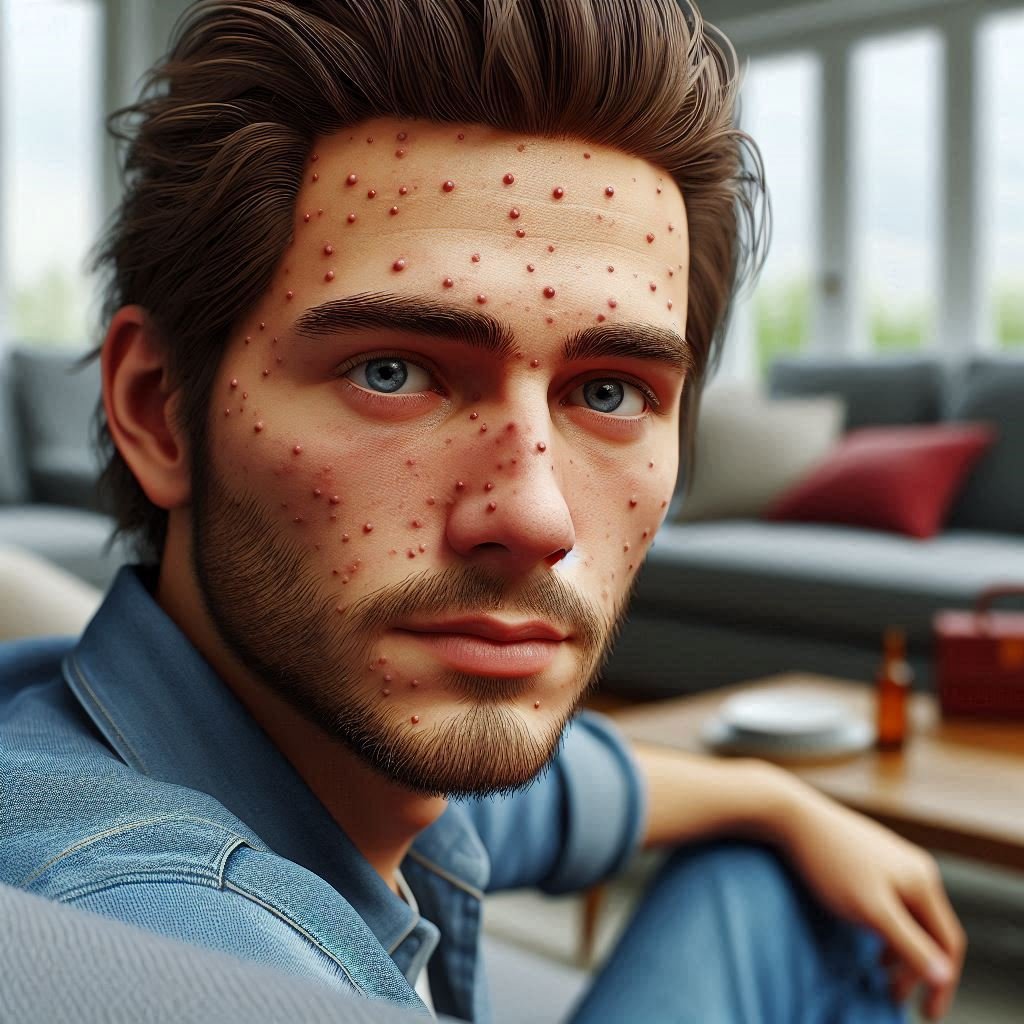
Pimple is a result of a blockage of the skin’s pore. Pimples are small skin lesions or inflammations commonly arising from clogged or infected pores. Pimples can be a source of social isolation that can lead to frustration and depression. Pimples affect almost 90% of the population at some time during their lives. Pimples commonly show up during adolescence. Although pimples affect around 20 million teenagers in the United States, there is a growing number of adults with skin blemishes. Pimples can occur throughout adulthood, depending on your hormonal activity, heredity and hygiene. Majority of teenagers and adolescents experience pimple outbreaks. This happens when the skin tries to adjust to hormonal changes typically during puberty. However, even adults can have pimples, especially those who are most exposed to dirt and experience a lot of stress. Also women typically develop pimple outbreaks during their menstrual cycle when their hormones surge before or during their menstrual cycle.
Pimples, blackheads, and whiteheads can form on the face, chest, arms, neck, and back. Acne can range from mild to severe and can last a few weeks, months, years or can come and go throughout life. Several factors contribute to the onset of pimples. Both adult and teenage acne is usually caused by hormonal changes in the body. Hormonal Acne is very common among young women and some men. Most importantly, elevation of hormones produced during puberty or the menstrual cycle in women result in the hormone by-product called DHT. This hormone by product overstimulates the oil gland resulting in plugging of the pore and acne production. Clogged pores or follicles are a primary cause of pimples. Skin bacteria ( Propionibacterium acnes) multiply in clogged pores where they release a substance that can produce irritation and inflammation. The wall of the pores can sometimes burst, spreading inflammation to the surrounding skin. This results in acne lesions that go from blackheads to pimples to nodules. Common over-the-counter medications for pimples are Benzoyl peroxide and/or salicylic acid. Both medications can be found in many creams and gels used to treat acne through topical application. Regular skin cleansing regimen to rid your pores of unwanted particles and dirt.
Home remedy for Pimples Tips:
1. Lemon is good in removing scars left by them. Apply lemon juice to pimples to reduce their size and intensity.
2. Pimples have been known to positively react to the addition of niacin (100 mg; three times per day), and vitamin A to a diet.
3. Useful fenugreek paste can be created from the leaves of this vegetable, which is then applied to the face before you retire each night. At the start of the morning, the paste should be washed off using warm water.
4. Juice from garlic is an effective way to get rid of pimples and acne as it kills the bacteria and the pimples will disappear with several applications.
5. Make orange peel paste by grinding it in some water. Apply on and around pimples.
6. Pimples can be cured by daily intake of a spoonful of honey mixed with sulphur powder.
7. Another overnight home remedy for zapping a zit is to put a dab of toothpaste on it to help dry it out. You may need to test this on a short-term basis to make sure it doesn’t irritate your pimple. Calamine lotion will have the same drying effect.
8. Take cucumber and grate it after peeling . To this add juice of one lime. Mix well and put it into a blender to make a fine paste. Apply this paste
9. Make a paste of neem leaves with turmeric powder. Apply on affected area. Wash it off after 20-30 minutes with lukewarm water.
10. Hot Epsom salts bath taken two times per week will ease all cases of pimples.
12. Keeping the skin well cleansed will deter the formation of pimples. Using a mild cleanser at the start of your day, in the evening, and before bed is recommended.
13. Touching your skin passes extra dirt, oil, bacteria, and grime that can trigger acne and other skin irritations.




